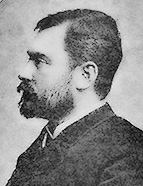

Like Hegel, Martins viewed the course of history as the ideal teleological realisation of freedom and accepted, in an evolutionary manner, the idea that Western societies were necessarily moving towards democracy, albeit threatened by the social movements of the “proletarian plebeians.” However, this was not conceived as a linear trajectory: the near future, in his view, would involve the return of a socialist Caesarism, protective of the underprivileged, as he observed in Germany (“Teoria…” [ " Theory " ...], Política e história I , pp. 29–30). Civilisation (in the singular), according to him, depended, among other factors, on the “psychological capacity of the race.” Yet he did not disregard the influence of environment, religious factors, or the role of chance in social change, which he had learned from Cournot ( As raças… , vol. I, p. 36). For all these reasons, his rejection of the concept of a systematic universal history, as conceived by the positivist Teófilo Braga, becomes comprehensible. Braga, a childhood friend from whom Martins rapidly distanced himself, stood in contrast to the close bond Martins later developed with Antero de Quental, a profound friendship that also provided significant critical value to Martins’s own works. In Martins’s view, specific civilisations existed independently of each other, with diverse characteristics and development rhythms, rendering the idea of a universal history nothing more than a chimera. Moreover, he considered it impossible to periodise ( As raças… , II, p. 273).
Nevertheless, he acknowledged the possibility of distinguishing major periods within the history of a particular civilisation, which would imply distinct fields of observation for the historian: a first period of aggregation of elements, in which a community remains a “mechanical being”; a second period of organisation, during which the nation becomes a “biological being”; and a third, in which collective ideas and feelings are expressed as thought ( História da Civilização Ibérica [History of Iberian Civilisation], pp. 212–213). Inspired by Hegel, heroes are seen as those who most fully express the national spirit. In the case of Portuguese history, Oliveira Martins proposed various periodisations throughout his works. In all instances, he distanced himself from purely dynastic or political criteria. In the introduction to the History of Portugal by Henry Stephens (1893), he distinguishes three major periods: “constitution,” “expansion” (from Aljubarrota to Alcácer Quibir), and “decline” (from then until the 19th century) (S. C. Matos, Historiografia e memória nacional… [Historiography and National Memory…], 1998, pp. 219–221).
This work is financed by national funds through FCT - Foundation for Science and Technology, I.P, in the scope of the projects UIDB/04311/2020 and UIDP/04311/2020.
